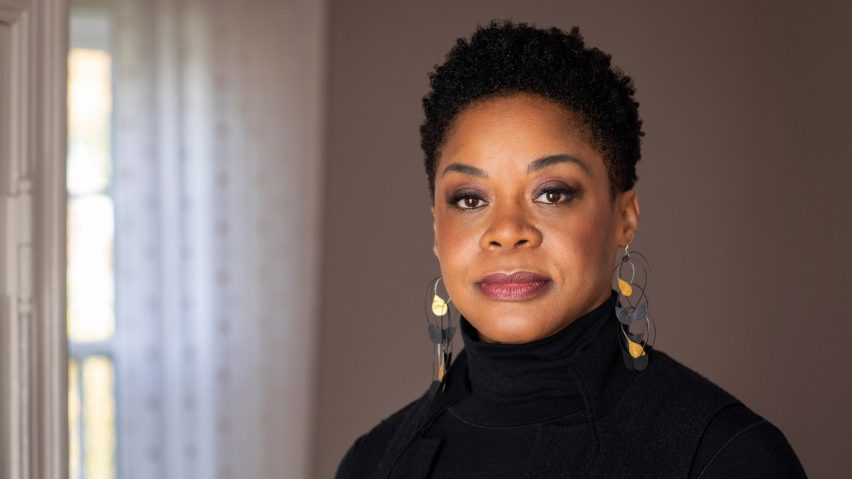Teacher and poet Crystal Williams has been appointed president of Rhode Island School of Design, becoming the private US art and design school's first Black president.
Williams, who is currently vice president and associate provost for community and inclusion at Boston University (BU), will become the Rhode Island School of Design (RISD)'s 18th president and its first Black president.
The news comes following the school's former president Rosanne Somerson, who retired at the end of June, announcement of a plan to tackle "multiple racist issues" at the school.
"I believe in the value of art and design"
Williams' appointment is the culmination of RISD's search for a leader "with the global vision to guide RISD's role in helping to create a more just, fair and sustainable society".
"I entered this search because I believe in the value of art and design to elevate and amplify the human experience, and to narrate who we have been and who we can become," Williams said.
"As a matter of fundamental principle, I believe in the power of art and design to not only, as bell hooks wrote '...tell it like it is' but to also, '...imagine what is possible,'" Williams told Dezeen.
"In this way, artists, designers, and creatives step into the world with courage and love for our collective human endeavor and dare to see and say: here is a new way, a different path," she added.
"To lead an institution dedicated to amplifying that and the creatives with the vision and courage to enact that vision, is to have an essential opportunity to help be part of and catalyze positive change in our world."
Williams' work has focused on inclusivity
Raised in Detroit, USA, and Madrid, Spain, Williams began her academic career at Reed College as a professor of English and was its dean from 2011-13.
She was then associate vice president for strategic initiatives and professor of English at Bates College from 2013-17.
Her previous work has focused on promoting diversity and inclusivity and at BU, she led a number of initiatives including the Inclusive Pedagogy Initiative and the LGBTQIA+ Task Force.
Williams told Dezeen that being appointed to the role at RISD matters because it creates new narratives.
"There is power in multiplicity," she said. "Diversity of experience and perspective catalyzes deeper, richer conversations and therefore stronger, more creative and innovative decisions and outcomes. It also matters because the narratives about who adds value and who should be in the room are derived from who has been in the room."
"That I am a Black woman now leading this august institution matters because, yes, I bring a series of experiences and points of view to the table, and, because behind me are a series of people who look like me who now have a new narrative that affirms: I can be there too!" she added.
"And, importantly, we often miss this but I think we shouldn’t, because behind and beside me are also a series of people who do not look like me who now also have a new narrative which is that people who look like me can be here and should be here too. Both of these new narratives change the course of history."
RISD on path to hire more diverse faculty
Williams will take up the role at RISD on 1 April 2022.
"Crystal shares our strong conviction in the critical role art and design play in shaping our world, and she has the expertise and qualities of leadership needed to meet the urgency of this moment and take RISD into the future," RISD Board of Trustees chair Michael Spalter said.
"We are thrilled that she has accepted our invitation to be our next president."
Last year, previous president Somerson announced plans to tackle racism at the school in an open letter.
"Unfortunately, these issues are not new; they have pervaded systems and structures at RISD for decades, largely unchanged," she said.
"As the leader of RISD, I take responsibility for having allowed a culture to continue to exist that does not fully live up to our values."
In November 2020 RISD launched its Race in Art and Design cluster-hire initiative to hire 10 faculty members who specialise in issues of race and decoloniality in the arts.
The photography is by Jo Sittenfeld unless stated otherwise.

